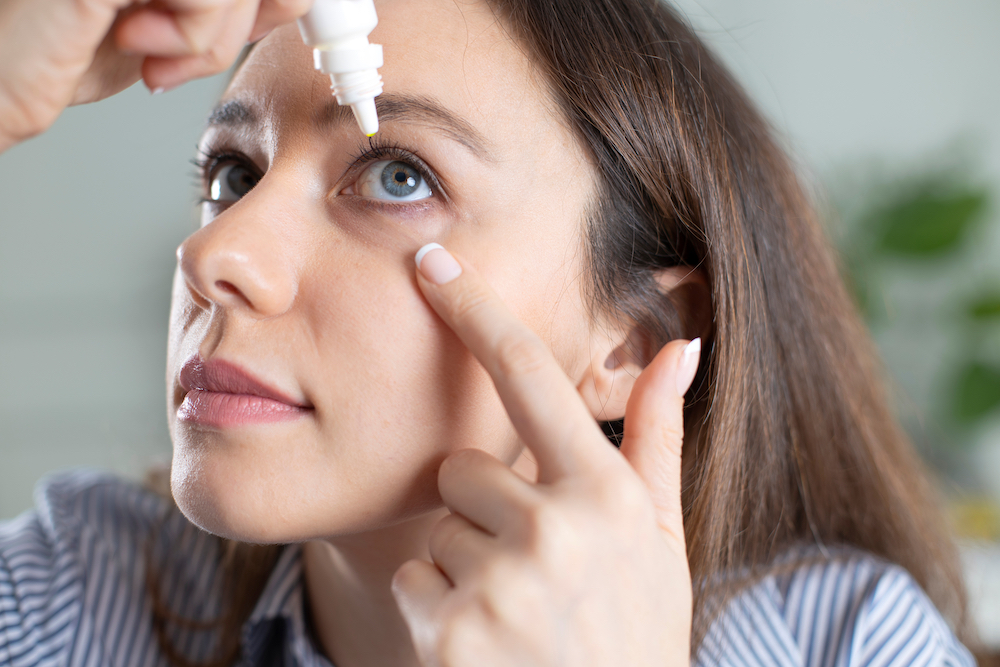
If your eyes do not have enough tears, you could have dry eye syndrome. You can tell your eyes do not have enough tears if you often experience a stinging or gritty sensation in your eyes. Other signs include producing a stringy secretion in or around your eyes and light sensitivity.
These symptoms usually occur if your eyes produce fewer tears or if the tears your eyes produce evaporate too fast.
What Causes Dry Eye Syndrome?
Several factors can cause your eyes to either fail to make enough tears or produce low-quality tears. These include:
Eye Allergies
Eye allergies can make your eyes dry and itchy. While medications such as oral antihistamines can relieve your eye allergies, they can worsen dry eye symptoms.
If your medications for eye allergies are causing dry eyes, see your doctor right away. You may have to stop taking eye allergy medications.
Aging
Growing older in itself is a huge risk factor for dry eye disease. Research shows that dry eye is very common in men and women above the age of 50. It is more common in women compared to men above 50 years old.
As you grow older, your tear glands degenerate and become clogged much more easily, reducing the number of tears you produce.
Medications
Tears consist of water, mucus, and oil. However, certain medicines can hinder mucus production and cause dry eye.
Such medications include antidepressants, diuretics, antihistamines, and beta-blockers used in treating hypertension. If you develop dry eye symptoms after taking a medication, talk to your physician.
Laser Eye Surgery
It is common to develop symptoms of dry eye syndrome right after undergoing laser eye surgery.
In most cases, prescription eye drops can cure these symptoms that tend to clear up after a few months. However, the symptoms can continue for more than one year after the procedure. In such a case, consult your doctor.
Contact Lenses
Studies show that half of the people who wear contact lenses get contact lens-induced dry eyes. Using contact lenses for an extended period can dry your eyes out and irritate them.
Likewise, wearing your contact lenses improperly or failing to care for them can cause dry eyes or worsen dry eye symptoms.
Looking at a Computer for Extended Hours
Staring at a computer or other display devices for long hours reduces the number of times you blink your eyes. That leads to inadequate blinking, loss of moisture, and eventually to dry eye syndrome.
Winds, Cold Temperatures, and Low Humidity
Winds, cold temperatures, and low humidity cause moisture to evaporate from the eyes quicker than usual. This leaves eyes feeling stuck, dry, gritty, and irritated.
Menopause
During menopause, the body goes through lots of hormonal changes. For instance, the body produces less estrogen, triggering distressing symptoms such as hot flashes, insomnia, and sweating. Dry eyes are among these symptoms.
To learn more about what causes dry eye syndrome, contact Houston Dry Eye Clinic at our office in Houston, Texas. You can call (713) 664-4760 to book an appointment today.




